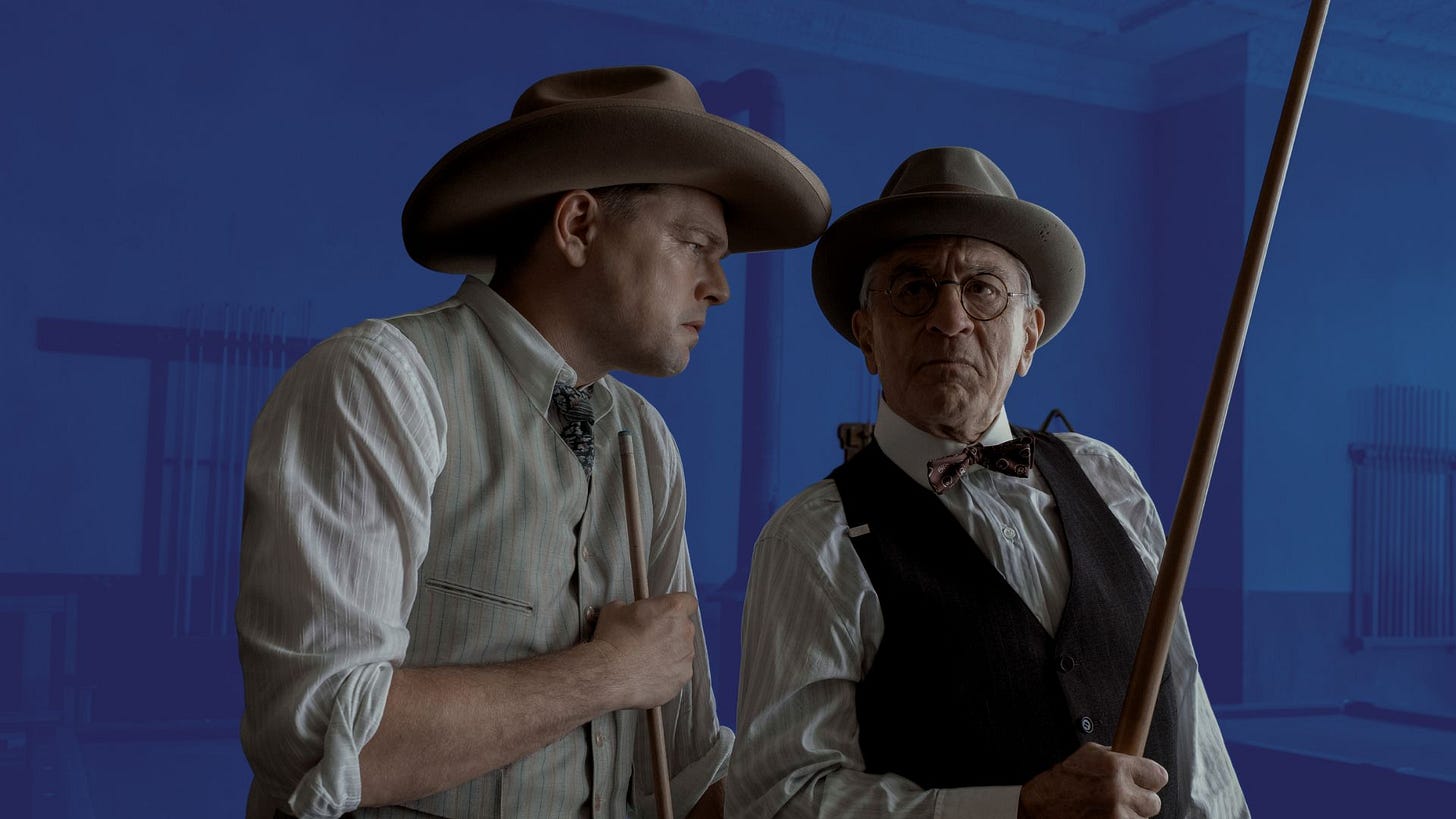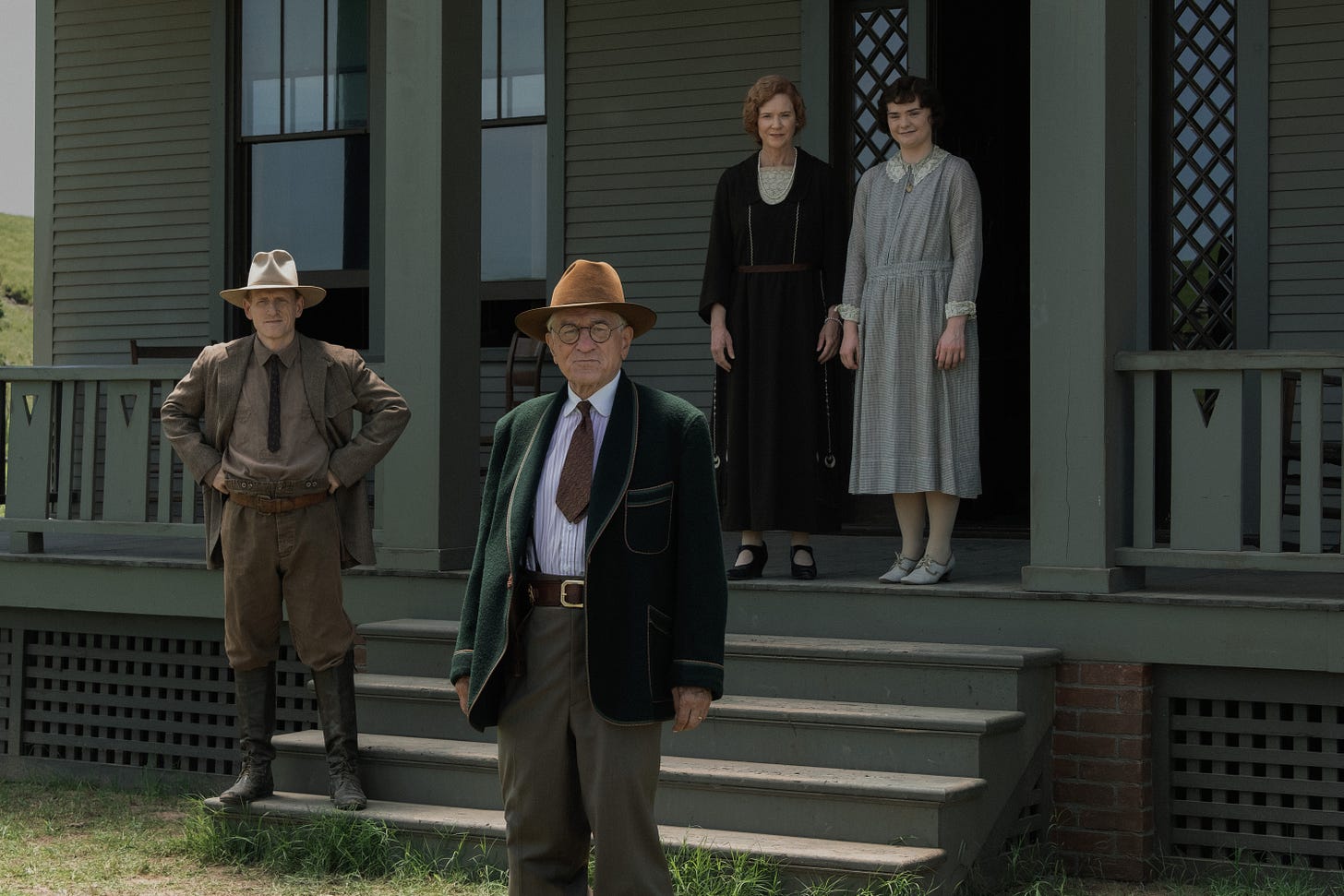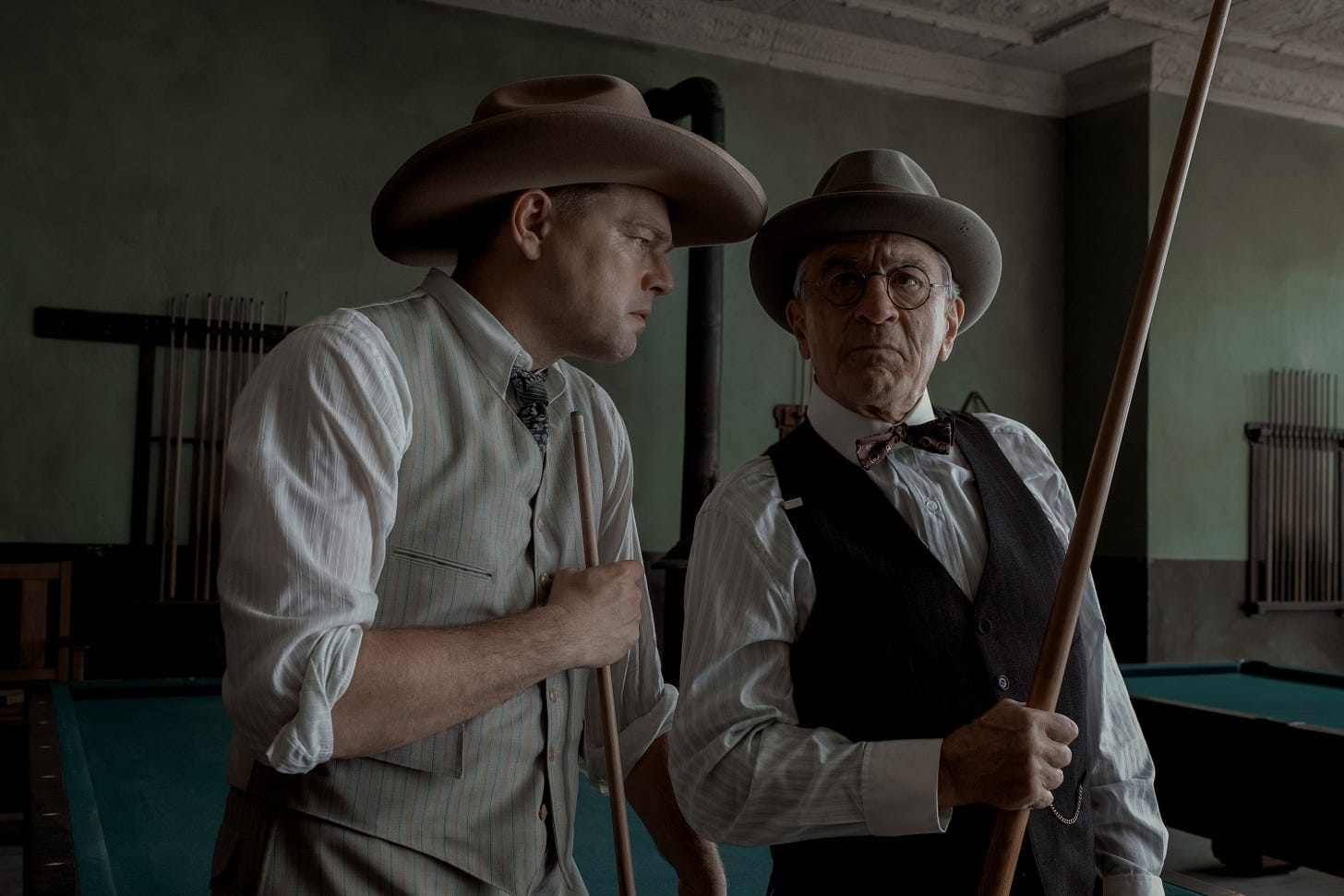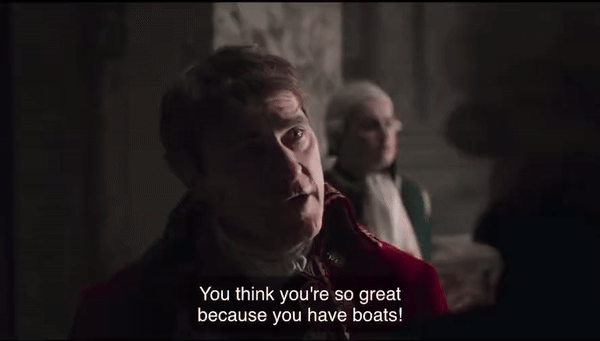2023: Portraying the Stupidity of Evil in Film
Who needs media literacy when you can scream the message at people?
Media literacy (or perhaps, illiteracy) is an increasingly hot topic in the online world. Across social and messaging platforms, the question constantly arises: why can’t others seem to understand what’s below the surface, or even on the surface, in film?
That’s not to say I’m an expert at analyzing media (there’s plenty I don’t understand or misread), but it seems that more and more often, people are unwilling to engage with even a film’s most basic meanings and themes, or even worse, miss those themes entirely. One study attributes this illiteracy to a lack of education and practice of the skill.
This leads to constant media misunderstandings. In particular, is depiction the same as endorsement? Or if a story is portrayed from an immoral character’s point of view, does it approve of that character’s actions?
So in 2023, one of my favorite trends arose to combat this: directors portrayed evil characters not as cool, smart, or alluring, but, for lack of a better word, as stupid. There’s an inherent absurdity to evil (why do we intentionally do things that harm others and ourselves?), and several films this year decided to bluntly show that. Spoilers to follow.
Killers of the Flower Moon
One of my absolute favorite films and theater experiences of 2023 was Martin Scorsese’s 206 minute masterpiece, Killers of the Flower Moon. From Apple’s presser, “‘Killers of the Flower Moon’ tracks the suspicious murders of members of the Osage Nation, who became some of the richest people in the world overnight after oil was discovered underneath their land.”
Over the course of his career, Scorsese has obtained an unfortunate reputation among certain viewers who think he glorifies violence and crime. Whether it’s showing powerful gangsters in Goodfellas or rich stockbrokers in Wolf of Wall Street, people often accuse Scorsese’s depiction of this lifestyle to equal his endorsement of that lifestyle. After all, Goodfellas opens with the main character saying, “As far back as I can remember, I always wanted to be a gangster.” That means we should all want to be gangsters too, right?
Well even a cursory examination of Scorsese’s past films will show that’s not the case; instead, he examines the corruption and destruction that these lavish lifestyles cause. But that’s not stopped many viewers from taking the most basic of stances: Marty thinks the bad guys are cool.
This specific context is part of what made Killers of the Flower Moon such a delight for me to watch. Scorsese rebutted this argument by making the villains of the story not just evil, but moronic. No one could possibly leave the film looking up to these foolish characters.
I’m not the first to observe this, but Killers of the Flower Moon often feels more akin to a Coen Brothers film than one of Scorsese’s own, the dark humor and somewhat cartoonishly evil characters bearing tonal similarities to films like Fargo or Burn After Reading.
Just take this scene, for example, where a character plots out a murder, in front of his lawyer no less.
KELSIE: So, my dead wife has two kids, and they have my name. So if I adopted them proper, if these two kids were to die, would I inherit their estates? They’re Osage. One’s half Osage, but they have headrights.
LAWYER: Kelsie, you realize that this indicates to me that you’re planning on adopting and killing these children?
KELSIE: No, not if it’s not legal and I don’t get the money. Then I’m not gonna do it.
My theater awkwardly laughed at the exchange, so blatantly evil yet bafflingly stupid that it catches the viewer off guard. There’s no reverence displayed for these Wild West cowboys, just a cold, blunt portrayal of their corruption.
We most consistently see this strange blend of comedy, evil, and stupidity in the film’s lead character, Ernest Burkhart (Leonardo DiCaprio). Ernest is easily manipulated by those around him, his love of money guiding practically every one of his actions and decisions.
He’s far from a mastermind, though. Nearly every plan his uncle tasks him with goes awry in one way or another, and the blank, clueless expression that DiCaprio frequently uses perfectly encapsulates just how little his character thinks things through. This scene with him and DeNiro got the biggest laugh out from me:
BILL HALE: I’m to Fort Worth for the Stock Show, so I want you to find Acie Kirby and tell him it’s time on the Smith job.
ERNEST: ...
BILL HALE: You hear me?
ERNEST: I don’t know him. I don’t know where to find Acie Kirby, where does he stay?
BILL HALE (TO GRAMMER): Where’s he find Acie?
HENRY GRAMMER: Find John Ramsey... he’ll know.
BILL HALE: Got that? Find John Ramsey... tell Ramsey to tell Acie that it’s time. I’m to Fort Worth......
Ernest stares...
BILL HALE (CONT'D): Look at me like this makes sense.
ERNEST: I am. I understand. I’ll find Ramsey and tell him.
Ernest is bumbling around and not so covertly helping plot the murders of the Osage people. Even when the film shows his inner conflict, it only further points to his selfishness and stupidity. How could he be doing this? Why would he willingly help poison and murder those around him, including his own family? It makes no sense, and only adds another level of dark, tragic humor to the turmoil he seems to feel.
Now, that’s not to say Scorsese’s latest film went without controversy. Many questioned why the film centered on the white characters rather than the Osage people themselves. But one thing is for certain: No one was leaving the film admiring Ernest Burkhart.
Napoleon
Another favorite for me in 2023 was Ridley Scott’s Napoleon, an epic historical drama about the life of Napoleon Bonaparte, with the titular character played by Joaquin Phoenix. Scott brings an expected level of grandeur and bombast to the film, with large-scale battle scenes reminiscent of his past epics like Gladiator, and the marketing rightly focused on those elements.
But those expecting a film venerating Napoleon, or at the very least respecting his military prowess, may have been in for a rude awakening. Somehow functioning as both a formulaic and unconventional biopic, the film follows the rise and fall of not a great leader, not even of a terrible dictator, but of a petty, pathetic little man.
Phoenix and Scott masterfully portray Napoleon’s famously small stature not simply through his height, but through his words and actions. Everything he does and says reeks of his insecurities. After all, just watch this incredible line and delivery from Phoenix, practically throwing a temper tantrum with his whiny voice and stomps:
The film doesn’t allow viewers the chance to mistakenly root for or idolize Napoleon. For every “cool” battle scene there’s an immature breakdown. For every shot of him majestically on his horse, there’s a shot of him barking and growling at his wife, Josephine (no that’s not hyperbolic or metaphorical, he literally barks at Josephine like a dog).
And speaking of Josephine, instead of witnessing Napoleon’s legacy through battle after battle, we’re to understand his relationship with France via a mirror of his relationship with Josephine. They fall in love as he ascends to power; they struggle with infidelity as he attempts to maintain that power; they divorce as he is exiled from his country; and she dies right before Napoleon’s great defeat at Waterloo. Indeed, this film about France’s greatest military leader is more often than not a domestic dramedy, showing the strangeness and pratfalls of Napoleon’s everyday life.
Biopics traditionally end with onscreen text explaining a character’s accomplishments and wrapping up the film’s themes. Napoleon is no different, but the ending text re-contextualizes (or at least emphasizes), that Napoleon’s entire life was one of death and defeat:
Napoleon Bonaparte died in 1821. Under his command in over 80 battles, more than 3 million soldiers were killed.
History may teach of Waterloo as his “only” loss, but each and every battle was marred by thousands upon thousands of deaths, stacking up to millions. As Rick Stevenson put it, “When your ‘greatness’ comes at the cost of at least three million lives, how great can you possibly be?”
Napoleon claimed to love France, yet he led its people to death. He claimed to love Josephine, yet he left her too, to die alone. Ridley Scott is unmasking the absurdity of power-hungry leaders through this film, inviting the audience to question the emotional intelligence of a man who claims to do everything for his wife and country, and yet only can think of himself, even to the end.
But Wait, There’s More (but Also in Conclusion)
While the connection between these two films is interesting to draw, I could hardly call this a 2023 trend if it stopped with two films. So even though I only broke down two films in depth, here are a few more instances where I noticed the “stupidity of evil” on display:
Poor Things (Yorgos Lanthimos): Bella Baxter (Emma Stone) is a Frankenstein-esque figure with the mind of a child in the body of a woman. In her attempts to learn about the world, Bella asks simple questions about life and society, but the men in her life are constantly dumbfounded and stumbling over their words. In particular, Dr. Godwin Baxter's (Mark Ruffalo) attempts at manipulating Bella are comically ineffective, highlighting his own lack of intelligence and moral compass. These men think they can control Bella due to her “immature” state, but they can’t even summon reasoning for the control they seek to maintain.
The Killer (David Fincher): This film follows a hitman on assignment, and while the audience is initially led to believe through his cool, collected voiceover that the character is meticulous and well-practiced, we quickly learn of his ineptitude. His voiceovers explaining to us exactly how to do his job are frequently interrupted by him messing up that job, wearing conspicuous outfits when he’s trying to blend in, making sounds when he’s trying to be sneaky, and even hitting the wrong target with his kill shot. The “how to” voiceover is purely a comedic device to show how incapable this killer actually is.

This list is far from comprehensive, but hopefully starts to paint a picture of this trend. And to be clear, this is far from a new technique. Films have portrayed evil in this way for decades, as my brief mention of the Coens’ pointed out. But I do find it unique that as of late, some of our greatest directors seem to be subverting the audience’s expectations of both the genre and of their own tendencies by blatantly pointing out that bad men aren’t to be admired, and they aren’t even meant to be respected.
These figures are bad, and if it takes candidly showing their selfish stupidity to portray them as villains, then that’s what Scorsese, Scott and other filmmakers are willing to do.
"Sensible thoughts lead you to do right; foolish thoughts lead you to do wrong. Fools show their stupidity by the way they live; it's easy to see they have no sense.”
- Ecclesiastes 10:2-3






